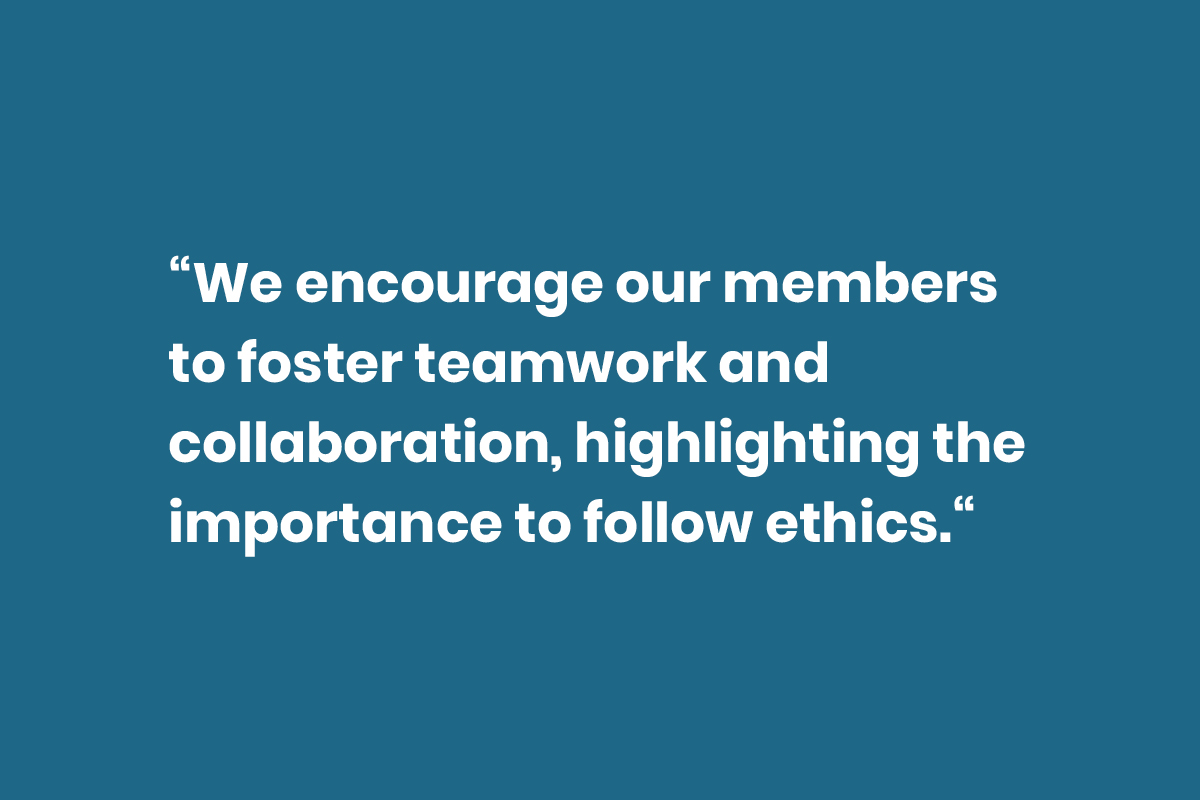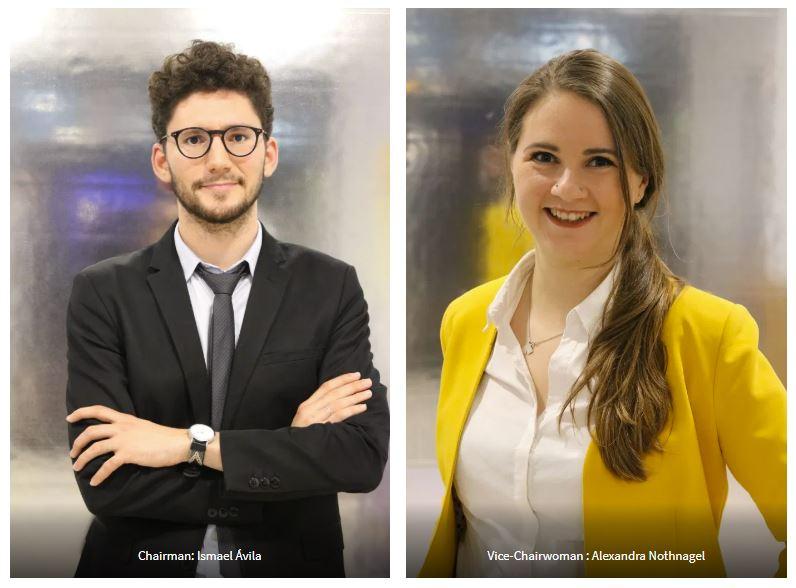In continuing to look forward to #BiotechWeek2020, we checked in with Ismael Ávila and Alexandra Nothnagel, the President and Vice-President of the Young European Biotech Network (YEBN)
Could you briefly introduce yourself and the Young European Biotech Network (YEBN) to our audience?
President Ismael Ávila:
First, thank you EuropaBio for this interview and the opportunity to spread our word in order to inspire and involve students and young professionals in YEBN, a European-wide non-profit association, currently registered in Germany. The actual YEBN core team is working amazingly closely, although since 2017 mostly in remote mode and exclusively on a voluntary basis with around 20 very active members. In the presidency, we are proud to work already for three years in close cooperation despite over 1000 km distance!
Currently I am the Project Manager of CataloniaBio & HealthTech companies’ association, we work to help the business world generate new solutions that improve people’s health, as well as positioning Catalonia as one of the top health hubs in the world. As President of the YEBN, my work aims to build bridges between academia and industry, creating tools to help young professionals and students to develop themselves at a professional and personal level. Since I started in the Executive Board as a Communications Officer, later as Vice President in 2018 and now as a President in 2019 I have been working to spread the word of the YEBN and make the network grow and feed it with useful activities and programs answering the unmet needs of all our members. I also co-organized the General Delegate Assemblies, when we started to develop a new strategy for the upcoming years.
I graduated in Biotechnology at the Autonomous University of Barcelona (UAB) and I chose this career path because I identified it as a very interesting way to help to reach a better world. I want to continue developing my career in the life sciences management field, always with the aim of a sustainable positive impact in our society in various ways as also defined by the UN Sustainable Development Goals. Alexandra and I based our 2020-2030 YEBN strategy on these fundamental SDG goals.
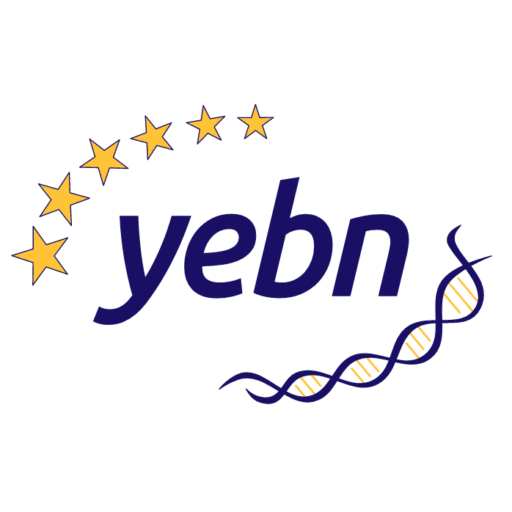
Vice President Alexandra Nothnagel:
Thanks for this opportunity to show the importance of teamwork and cooperation across borders in YEBN: Ismael and I form a gender balanced binational (German, Spanish) presidency, strengthening our European DNA with our complementary visions, working experiences and networks.
The YEBN was founded in 2002 at the University of Bologna (Italy), and moved around – much like some of us in the field during their studies and careers – for some years to the UK (as an Ltd.) and then to Germany, where the YEBN was registered as non-profit organisation (e.V. for “eingetragener Verein”) in Lübeck. Currently we aim to move the YEBN to Frankfurt am Main, as the city has a lot to offer allowing the YEBN to network locally and internationally. I myself studied biochemistry at Goethe University Frankfurt and worked in the Immunology Department of Paul Ehrlich Institute. Before I became a software engineer and consultant aiming to provide powerful IT solutions for life science R&D, I moved as an MSCA Early Stage Researcher in Molecular Neurobiology to Paris. Being interested in academia and industry already during the studies, I attended events addressing careers in industry of the btS (biotechnologische Studenteninitiative [Eng. Biotechnology students’ initiative]) which is one of the founding members of the YEBN. I followed YEBN events from 2007 until in 2017, I co-organised the YEBN annual meeting in Frankfurt, joined the executive board and become YEBN president in 2018. My aim is to grow YEBN from a federation of student associations to a sustainable network bridging not only academia & science by its activities for students but also providing support for young professionals & entrepreneurs by linking the young with the expert (alumni) generation. Joint interest and activities, mentoring, job opportunities and general interest discussions shall make the network ready for the next 18 years. Recent developments show the fruits of this work already, many members joined in 2020 and we are happy for the rich interactions and corporations coming with ANBI from Italy, AYB from Poland and NGB from France as YEBN’s Institutional Members.
The YEBN aims to build a bridge between academia and industry in the European biotech ecosystem. What activities are you and your members doing in order to connect people across Europe?

YEBN is especially interested in activities aiming to foster European collaborations and careers in the biotech field in Europe and in giving a voice to young bioleaders concerned by the creation of sustainable impact in our society. In order to achieve this goal, we provide a European platform for international events and career opportunities, we support young scientists in expanding their network and enhancing their career, and we prepare training sessions to transfer the experiences and skills to young scientists covering their needs beyond their studies and professional first years experiences for long-term success. In addition, we connect regional and national organisations in Europe for a lively exchange of ideas and experience and make their activities for an international community. The YEBN also signs partnerships in order to feed our talented network with attractive job offers and internships.
The activities we celebrated this year proved their success by attendance numbers and feedback. We inspired and involved already more than 200 young attendees interested in developing their career, and our social media reaches more than 3000. During the “Life after PhD”, former PhD students who entered into the professional world shared their experiences of this transition with us. The “Bio-Building Yourself Program” arose from the need of giving our members and scientific audience the opportunity to keep growing professionally and to learn how to develop their personal industrial career pathway during this hard time of confinement due to the COVID-19 Pandemic. We also identified that in addition to the university curricula, the famous transferable “soft” skills are attractive on the job market and for this reason we set up the “Boost Your Soft Skills Program”. The aim of this program is to provide a series of three sessions where professionals guide the attendees on how to build strong professional relationships and networks, how to achieve a leadership skill-set, and how to effectively communicate within different contexts in the professional world. Another new training program series for 2020-2021, mostly oriented to the academic public, is in preparation: “Biobridge your science” is inspired by the international research collaborations that we have recently observed with the COVID-19 pandemic and the creative, multi-disciplinary and collaborative spirit of international hackathons trying to tackle COVID-19 issues. The new program aims to foster a more collaborative, “kind” and inclusive science.
As soon as possible, the YEBN will have international events again in Germany and the institutional member’s countries (Spain, Poland, Italy,…), visiting university and industry partners. We encourage our members to have at least one local event in English to transmit it online to a broader audience, as well as English dissemination of their activities to inspire members in other countries to organise similar events. For the past 18 years the YEBN has contributed to the mobility of its members by making the attendance of various life science and Biotech events in different European countries accessible. For this there is usually at least one annual conference organised in one member country inviting the other members to discover the regional highlights in academia, science history, pharmaceutical and biotech industry, national heritage and culture.
Meanwhile, the personal development and branding of our members remains a core activity in the YEBN network with personal development opportunities and internal mentoring in the task force teams providing valuable hands-on experiences in various activities important in industry and barely taught at university: from science communication to marketing, grant and funding applications to network building, from moderation to leadership skills in the task project, group leader and executive board positions. While our members’ work is voluntary, they are repaid by very rich experiences in creativity, responsibility, decision-taking, leadership and close mentoring by experienced members of the YEBN.
More activities are under creation or already waiting just around the corner and anyone interested to join our teams, trainings and adventures as participant, active team member or partner can contact us through contact@yebn.eu and social media. Let’s start a common journey on your way becoming a successful and responsible bioleader!
Where do you see needs for improvement in order to get young biotech professionals into the right environment to drive Europe forward?
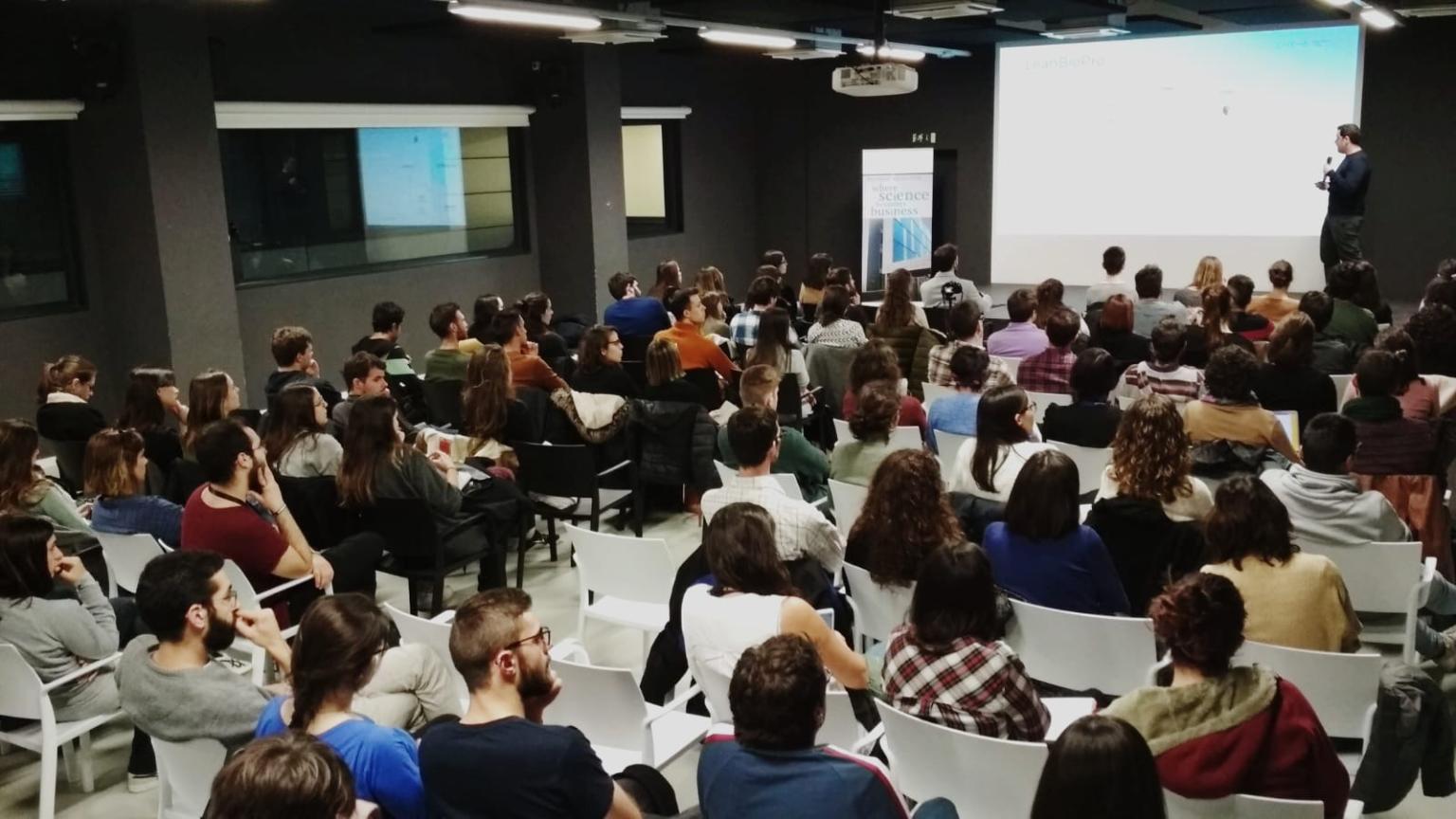
Even if the current academic studies totally cover the hard skills in scientific topics, there are many soft skills and codes that are particularly important in daily professional life which are necessary to develop to avoid obstacles. The YEBN can help with this by complementing the development of young professionals once they identify a need in complementary skills.
Our experience suggests that it is important to conduct regular surveys with young biotech students and professionals to identify their needs. As the field is impacted by innovation these can range from specific needs in the rapid accessibility of new tools and technologies and related trainings, to trainings on new regulations and ethics, to some more stable needs regarding trainings on soft skills and key qualities needed for a successful transition from university or academic research to industry. We also give advice on funding opportunities for internships, PhDs, or attending conferences and events. Helping young biotech professionals to enrich their career paths with multidisciplinary qualities by offering training widening their expert knowledge in other disciplines is another field of YEBN activity.
Our values totally reflect what we want to inspire to all the members that pass through our network. We encourage our members to foster teamwork and collaboration, highlighting the importance to follow ethics. In addition, we help them to develop responsible decision-making and leadership skills in their actions while staying humble also activates their personal development. Finally, we illustrate the power of networking by creating international bonds stronger than individual interests and of course promoting equity in a diverse and inclusive society. As an example of the latter, YEBN partnered up with a multi-association initiative called ResearchAbility aiming for a diverse and inclusive researcher’s society. We are also active within the Marie Curie Alumni Association and the FEDEEH, a French federation of students with disabilities, collaborating closely to learn about measures needed to make careers in research accessible for persons with disabilities and to provide easy tools to our institutional members and partners to conduct disability awareness trainings and provide information on accessible events and training for everyone.
We consider it also interesting to promote participatory research, which is closer to patients and civil society. This approach of conducting research does not seem to be included in university curricula, and thus patients related to the work of a thesis topic tend to just be mentioned in the introduction of a thesis rather than met in a conference dedicated to the education and dissemination about the research on their disease. These knowledge exchange occasions between researchers and patients can be real think-tanks inspiring researchers and informing and motivating patients to help gather the necessary study participants and funding.
Last but not least, the promotion of intercultural competences, tolerance and language skills are judged crucial for an efficient and welcoming European biotech and life science community: cross-border collaborative work and thinking is easier if you can communicate and understand other European nations’ languages, cultures and needs. English is a common basis to start, but YEBN wishes to encourage its members to also learn the local language in their host countries. For this, we are still searching for partnerships with language schools and language software companies.
This year’s Biotech Week will celebrate the amazing science that helps us understand the world around us – what are you looking forward to in the European Biotech Week 2020 (28 Sept – 04 Oct)?
Some activities are just “getting out the oven” for this summer and for the European Biotech Week 2020. We are going to continue inspiring and involving, we are going to set up new mentoring and training sessions, as well as panels with different professionals and experts, many of them in webinar format, in order to make it accessible and reach as many members as possible around Europe. For now, we don’t want to reveal more and invite you to stay tuned on our social media and discover all the activities we are preparing there. As the YEBN wishes to offer you an attractive program fitting your needs and interests – do not hesitate to let us know your proposals and wishes if there is something you are still missing in this year’s training and conference calendar, or a speaker you would love to hear from. As wished by our members, the YEBN will for example closely observe the recent applications of machine learning, artificial intelligence and data science for drug discovery, therapeutic manufacturing, and quality control and is looking to identify partners for the training of our members on essential skills in computational biology, bioinformatics, and biostatistics and data science. It is in our YEBN-DNA to address your “hot topics”, we are flexible to quickly react to wishes and needs. Let us make it possible for you and others – contact@yebn.eu with your suggestions.
During Biotech Week 2020, there should be no hesitation to critically evaluate and disseminate to the civil society and media which role and importance the biotech research and innovation has had and will have with respect to the COVID-19 pandemic. YEBN and its member institutions aim to underline the general interest and attractiveness of studies and careers in the biotech field. Standard and rapid tests, innovative drug therapies, vaccination development and drug manufacturing, ventilators, environmental friendly energy sources, bioactive materials for construction, water cleaning approaches, and many more: biotech solutions including digital and medical technologies are crucial in guaranteeing health and safety. This year’s Biotech Week is an opportunity to present successful solutions against COVID-19 proposed by the leaders in the biotech field. It is also an opportunity to use the lessons-learned about exceptional cross-country collaborations and innovations, governmental hackathons, successful open science and open source products as inspiration for future rapid crisis solutions provided maybe by collaborative approaches between academia, biotech industry, politicians and civil society.
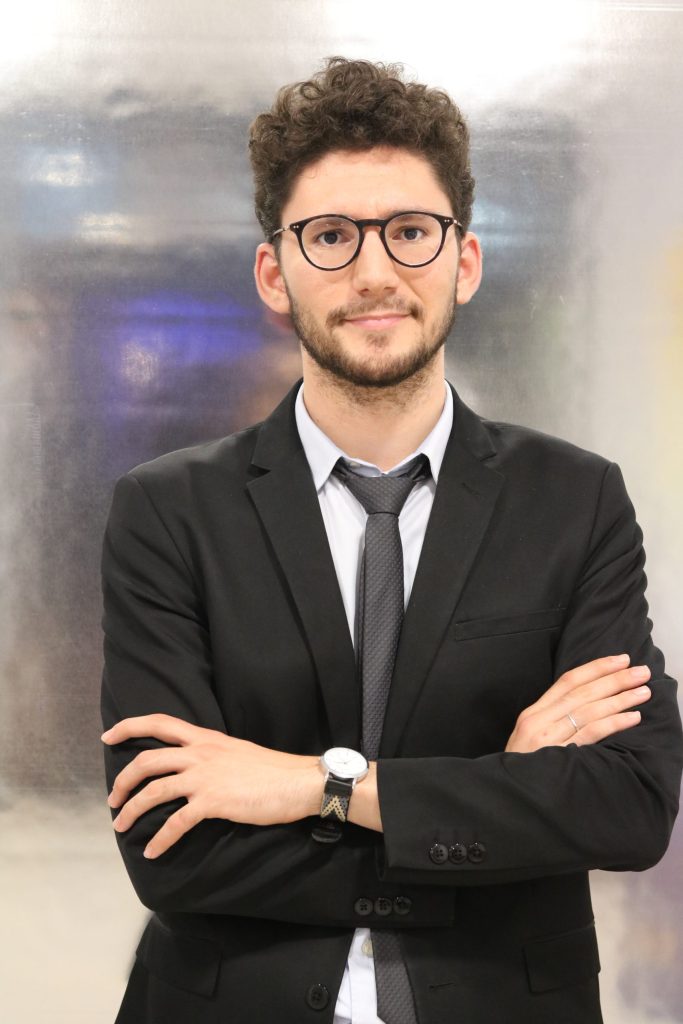 Ismael Ávila – President of the Young European Biotech Network
Ismael Ávila – President of the Young European Biotech Network
President of YEBN and Project Manager of the Catalan Health Companies association CataloniaBio & HealthTech, graduated in Biotechnology in the Autonomous University from Barcelona. I chose this career path because I identified it was a very interesting way to help to reach a better world. I want to continue developing my career in the life sciences management field. Always looking for opportunities, with the aim to create and develop a good sustainable impact in our society in different ways. Always open to networking so, do not hesitate to take a virtual coffee with me – I am delighted to meet new people and exchange ideas! Connect on LinkedIn.

Alexandra Nothnagel – Vice President of the Young European Biotech Network
Current Vice-president of the YEBN and software engineer and consultant in France to provide powerful IT solutions to the public, health and life science sector. I graduated in biochemistry in Frankfurt and investigated cell development and apoptosis in Leishmania parasites, various blood-derived and neuronal cell culture models at Georg Speyer Haus, Sanofi, Paul Ehrlich Institute, UAH Madrid and as MSCA ESR fellow at IBENS Paris. Aiming to create sustainable networks to facilitate biotech innovation and foster equity and accessibility of careers in academia and industry in Europe, I have been active for >12 years in associations. Contact me via LinkedIn!

